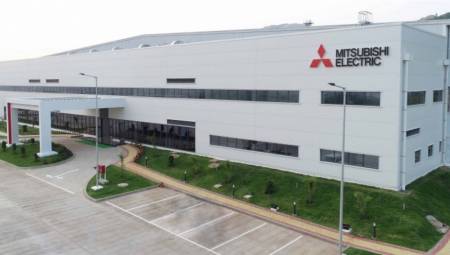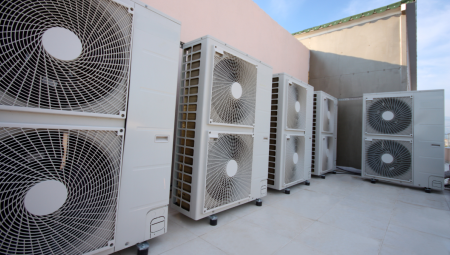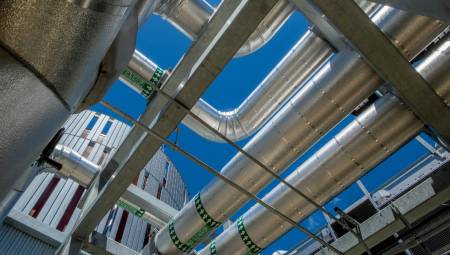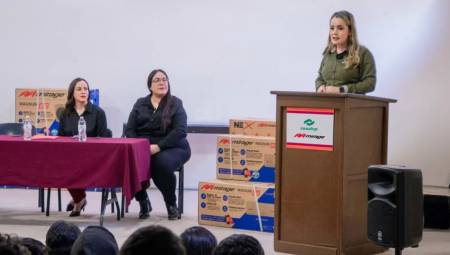International. A total of 71 new projects announced Amazon to expand its renewable energy portfolio worldwide. This includes the company's first project of its kind in South America, a solar field in Brazil, and its first solar farms in India and Poland.
Once fully operational, Amazon's global renewable energy portfolio will generate 50,000 gigawatt hours (GWh) of clean energy, equivalent to the amount of electricity needed to power 4.6 million U.S. homes each year.
 "We are bringing new wind and solar projects online to power our offices, fulfillment centers, data centers and stores, which together serve millions of customers globally. We are looking to reach 100% renewable energy across our business by 2025," said Adam Selipsky, CEO of Amazon Web Services. "Around the world, countries are looking to accelerate the transition to a clean energy economy. Continued investments like ours can help streamline this process as we work together to mitigate the impacts of climate change."
"We are bringing new wind and solar projects online to power our offices, fulfillment centers, data centers and stores, which together serve millions of customers globally. We are looking to reach 100% renewable energy across our business by 2025," said Adam Selipsky, CEO of Amazon Web Services. "Around the world, countries are looking to accelerate the transition to a clean energy economy. Continued investments like ours can help streamline this process as we work together to mitigate the impacts of climate change."
Brazil's solar park consists of a total of 122 MW. In addition to providing renewable energy to Amazon's operations in the region, this project will also provide economic benefits to the local economy and its biodiversity. The project includes an investment of $380,000 (R$2 million) in environmental programs during construction to protect and promote biodiversity. It is estimated that the project will create 850 jobs during the construction phase, and another 30 permanent positions once the project becomes operational.
As the world's largest corporate buyer of renewable energy, Amazon now has a total of 379 renewable energy projects in 21 countries, including 154 wind and solar farms and 225 rooftop solar projects. This represents 18.5 GW of renewable energy capacity. By the end of 2021, the company will have reached 85% of this energy at the operational level.
Amazon continues to successfully enable projects on power grids around the world, including:
In the Asia-Pacific region, Amazon announced the company's first three large-scale projects in India, which consist of solar fields in Rajasthan, representing 420 megawatts (MW) of clean energy capacity.
Amazon is growing rapidly in India, and these early investments play a pivotal role in reducing its carbon emissions in the country. In the Asia-Pacific region, the company now has a total of 57 renewable energy projects.
● In Europe, Amazon already has 117 renewable energy projects. The company announced its first rooftop solar projects in France and Austria, and its first solar park in Poland. Amazon's investment in its first commercial-scale project in Poland is one of the largest corporate solar deals announced to date in the country. With this commitment, Amazon contributes directly to the Polish government's goal of increasing renewable energy in its grid. Business support for new renewable energy projects like Amazon's allows the market to expand to new wind and solar farms, and accelerates grid decarbonization.
In North America, Amazon is adding 1 GW of clean energy capacity in the southeastern United States, including the company's first two renewable energy projects in Louisiana. The company now has a total of 202 projects across North America.
● In South America, Amazon announced its first renewable energy project, which consists of a 122 MW solar park in Brazil. In addition to providing renewable energy to Amazon's operations in the region, this project will also provide economic benefits to the local economy and its biodiversity. The project includes an investment of $380,000 (R$2 million) in environmental programs during construction to protect and promote biodiversity. It is estimated that the project will create 850 jobs during the construction phase, and another 30 permanent positions once the project becomes operational.
To help expand the benefits of investments in the renewable energy sector as it continues to grow, Amazon is also working through the Clean Energy Buyers Institute's (CEBI) "Beyond the Megawatt" initiative to ensure that the sector is maximizing the economic, environmental and social impact of energy procurement.
Amazon co-founded The Climate Pledge in 2019, pledging to reach net-zero carbon by 2040, ten years before the Paris Agreement. The Commitment now has more than 375 signatories, including Best Buy, IBM, Microsoft, PepsiCo, Siemens, Unilever, Verizon and Visa. Amazon has also ordered 100,000 electric vehicles and has begun rolling them out across the United States. The company is also investing $2 billion in the development of decarbonization services and solutions through The Climate Pledge Fund.















